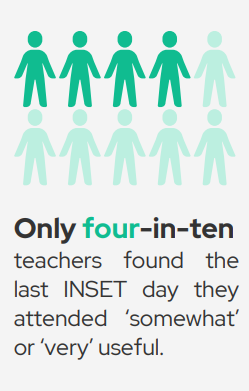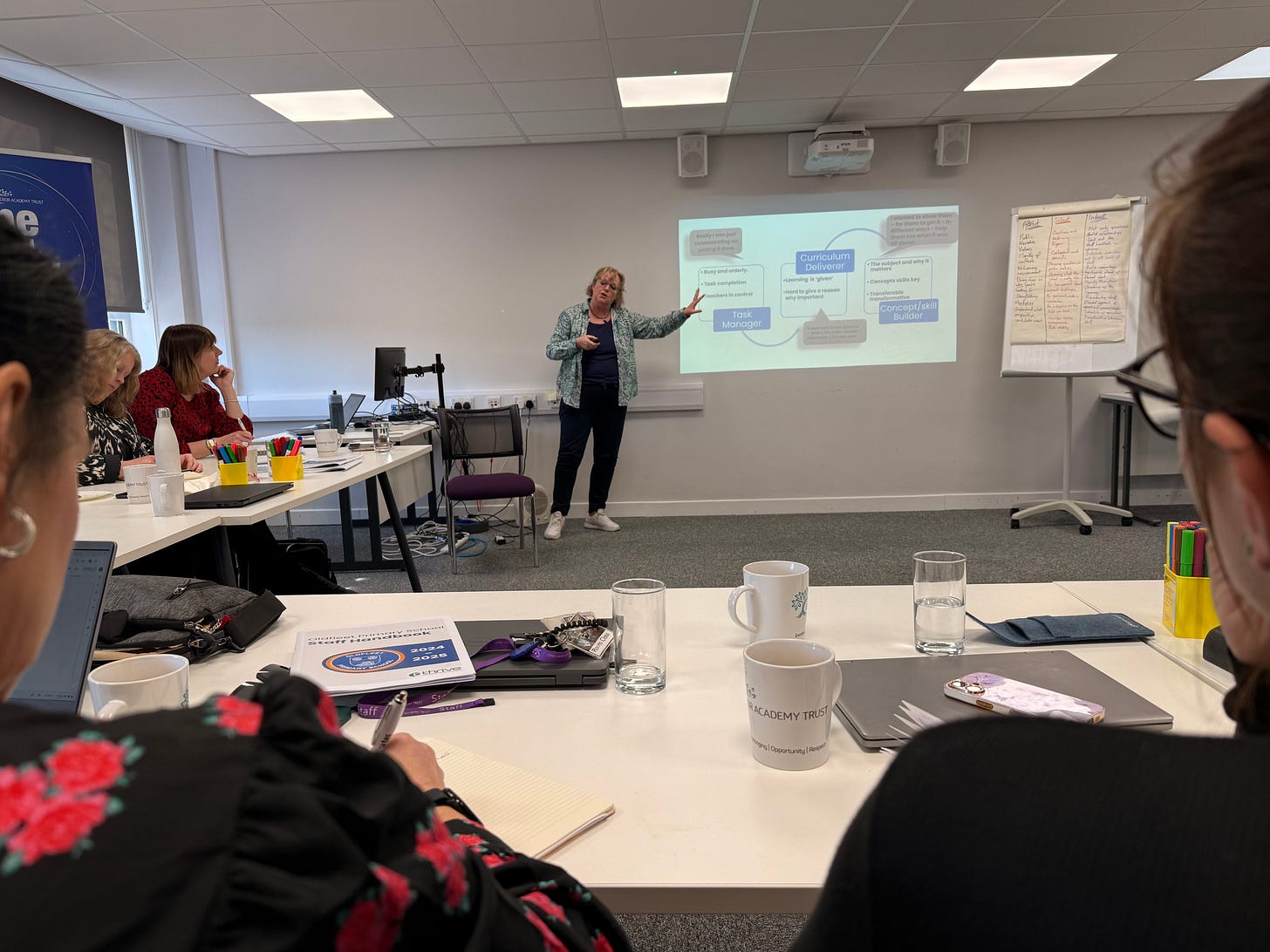# 2 Design great CPD so it doesn’t feel like you're running up that hill
Today's second of 8 posts in the 'middle eight' series explores our term two focus on 'developing great teachers'
Research tells us that ensuring teachers continue to get better at teaching is one highly reliable way to close the disadvantage gap.
However, according to this 2023 Whitepaper and this 2024 report for Teacher Tapp, we’re not making the most of the benefits great CPD can offer.
Even though headteachers are spending valuable hours in the 1265 schedule on CPD, if it isn’t having the desired impact, it can definitely feel like a joyless, Sisyphean challenge. Or indeed, like ‘running up that hill’ (another song with a cracking middle eight, btw).

The nature of Yorks100 is that we work with aspiring headteachers who have spent years as a pastoral deputy in a small, coastal primary alongside a new deputy headteacher of a secondary school in a city who leads on professional development. This year we also have two special school colleagues whose staff need a lot of specific, additional training alongside their CPD.
It is therefore fascinating bringing together folks from across the region from schools of all shapes and sizes and seeing the difference in the extent to which folks have been exposed to material around teacher development. And it is beautiful to see those who feel less familiar completely at ease to ask questions of those who feel more confident. Never has it felt truer that nobody is as smart as everybody and I’m so proud of the psychological safety the group has built so that no one is defensive about what they don’t currently do or know. Everyone is committed to getting better so that their children, in their place, get a great deal.
As such, we began with the 2016 Standard for teachers’ professional development as well as rummaging around in the EEF guidance on effective professional development. The ever-thoughtful Jon Hutchinson created a plethora of stimulus for participants this term, unpicking four key ideas;
codifying principles of effective teaching;
building deliberate practice into PD sessions;
sequencing a CPD curriculum;
personalising PD through instructional coaching
We also had fantastic webinar guests Josh Goodrich and Alex Gingell from Steplab on Instructional Coaching, David Monis Weston on the role of headteachers in curating PD and from Laura Senior of Beckfoot Trust on her trust-wide plans for professional growth. We were also beyond thrilled to welcome Sam Twiselton to our Term 2 conference at Ebor Acdemy Trust, who pushed our thinking further about moving colleagues from being ‘task managers’ to ‘concept builders’.
In these webinars and in our conference and school visits, it has often seemed like the most successful headteachers have found the right balance between autonomy and codification that works for their school right now. We will explore this tension later on in the eighth ‘polarities’ post.
The most resounding takeaway from this module has to be about being intentional. Yorks100 doesn’t claim to have a silver bullet answer, nor do we promote a particular type of teaching. However, we do know that headteachers don’t always directly lead PD in schools so they need a set of behaviours, systems and practices that allow them to lead through others to ensure it is a high quality offer for all staff. As such, we provide a range of stimuli for participants to ensure that when they’re in charge, they know how to make the case for exceptional CPD, the model of great teaching they want to pursue and have systems to measure whether or not that offer is leading to closing the gap for children experiencing disadvantage.
Yes, delivering the right professional development to your staff team may well feel like running up a hill. But you’re not doing it alone, and the view from the top is worth it.
If you want to find out more about the programme, please don’t hesitate to get in touch!



